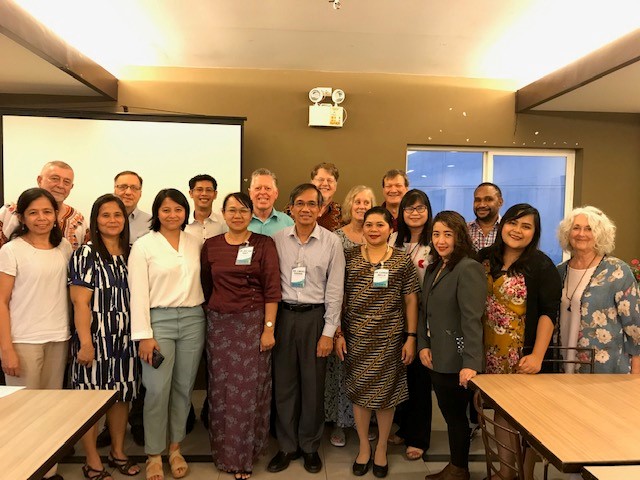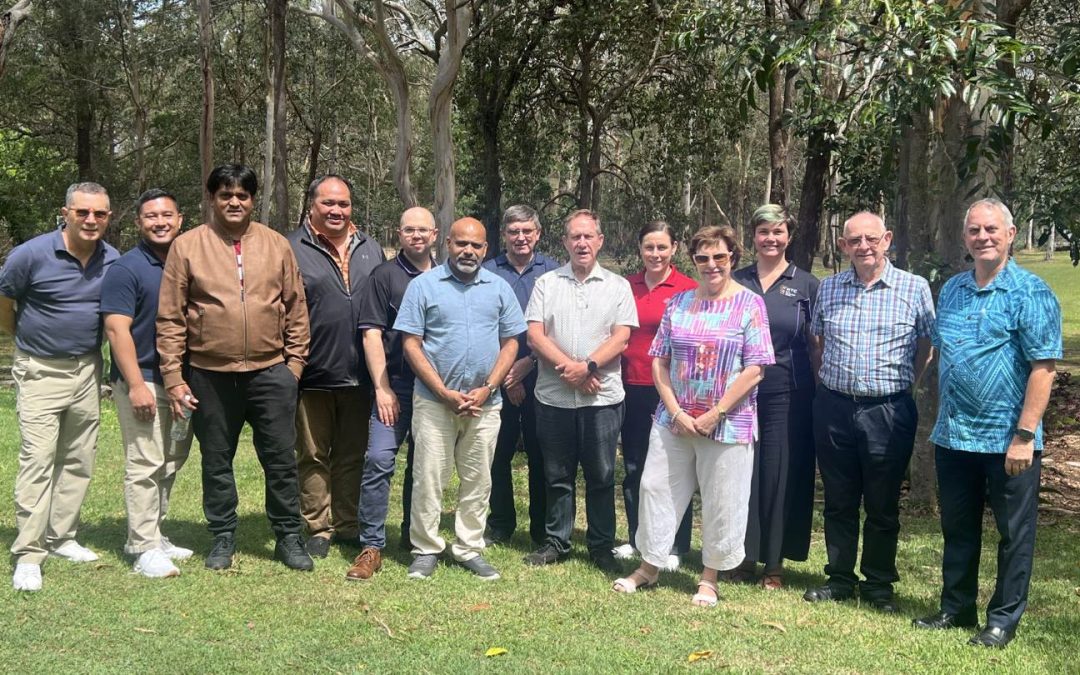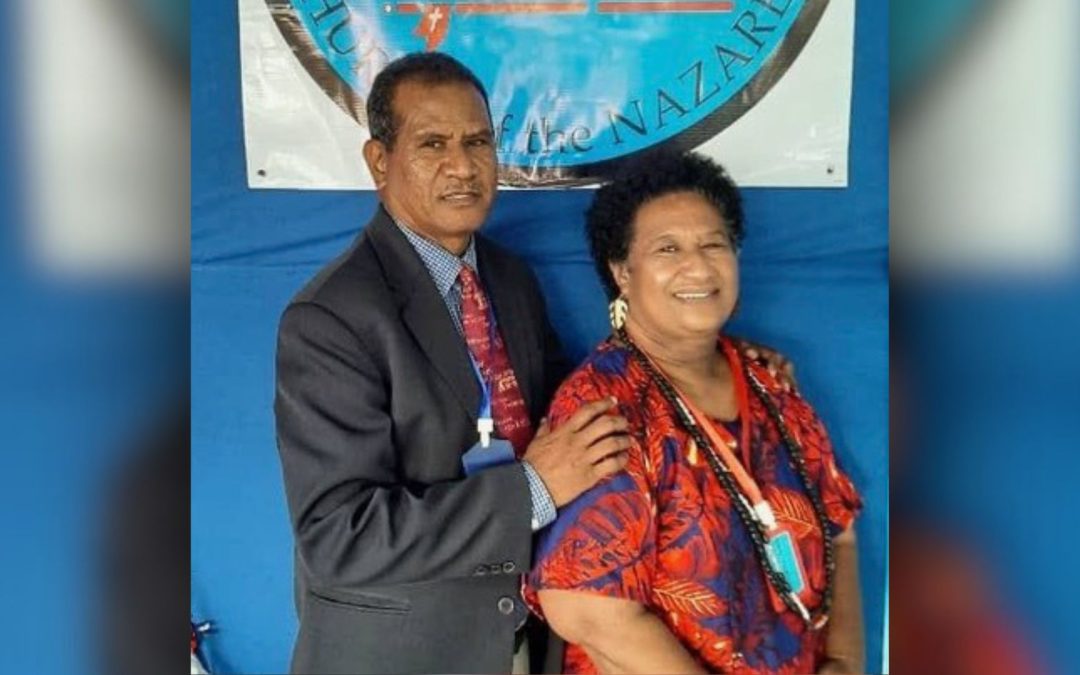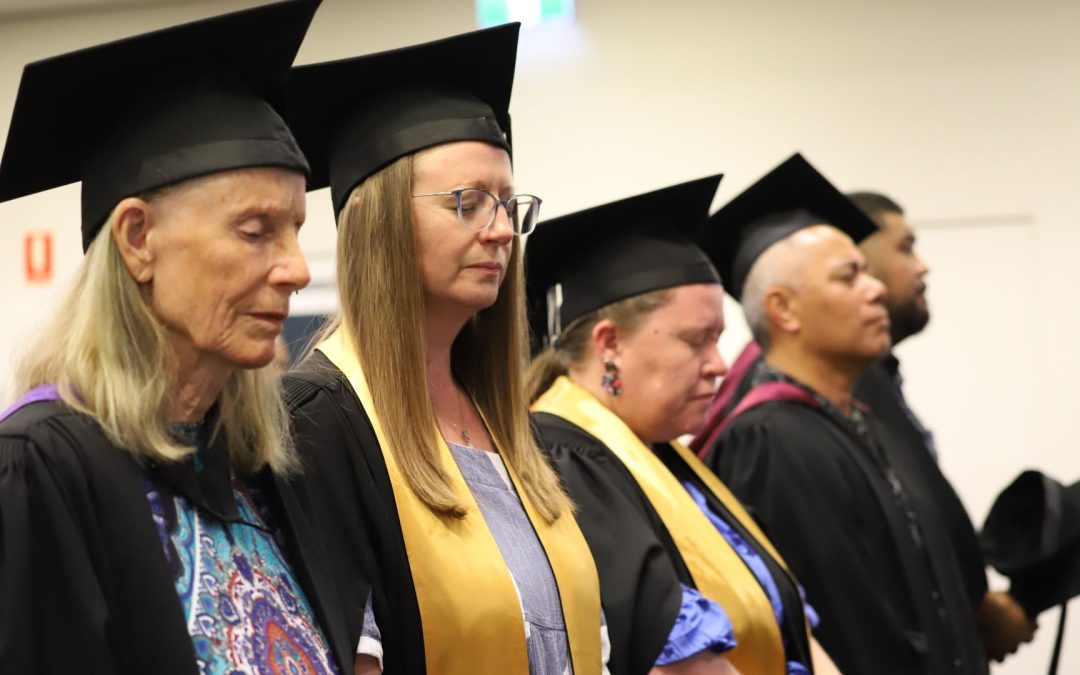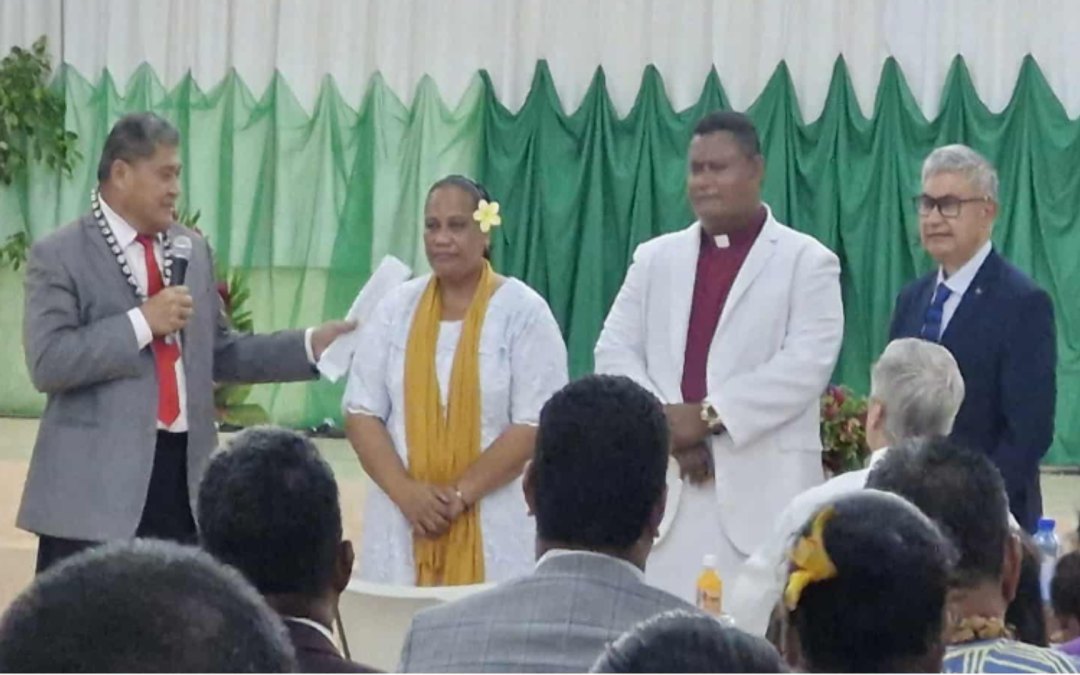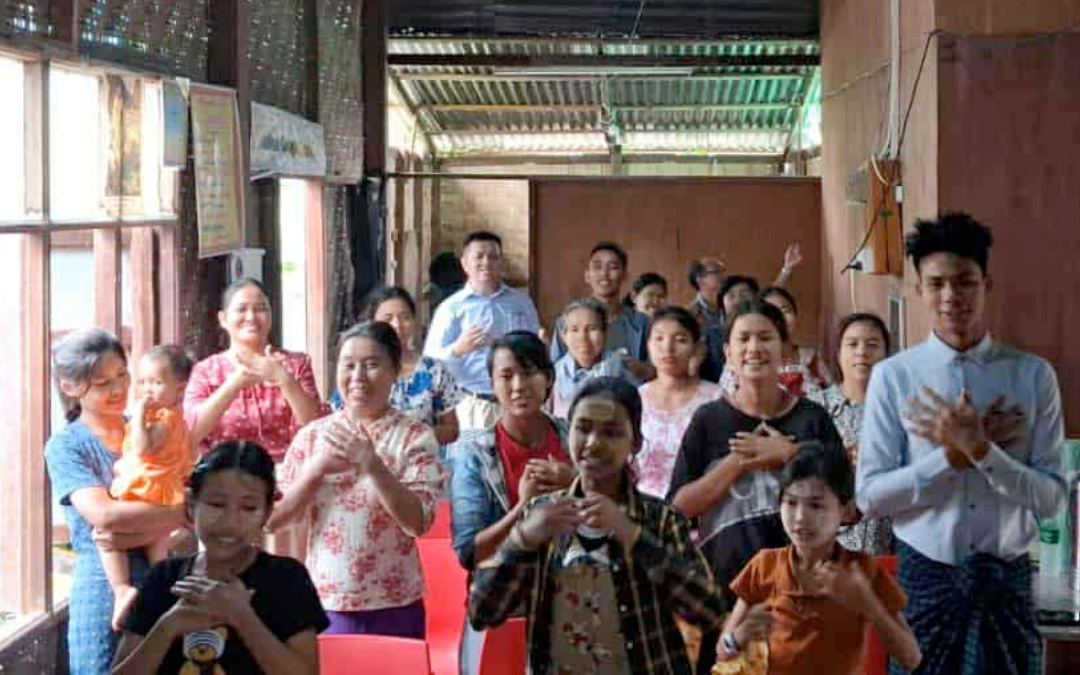After a three-day visit to the APNTS campus at Taytay, Rizal, Philippines from 18-21 August 2019, the 4-person evaluation team from the Association for Theological Education in South East Asia (ATESEA) has recommended that APNTS’s three flagship Masters’ degree programs that have been accredited continuously since 1991 be reaccredited for another 5 years: Master of Divinity, Master of Science in Theology, and Master of Arts in Religious Education. The ATESEA team noted the excellence of the Board of Trustees, administration, faculty, and staff, the beauty and sufficiency of our educational facilities, and the communal ethos of the seminary.
Comprising the ATESEA team were Dr. Limuel Equina, Executive Director of ATESEA; Dr. Eh Tar Gay, Vice-President of Myanmar Institute of Theology in Yangon, Myanmar; Dr. Connie Mella, Academic Dean of Union Theological Seminary in Cavite, Philippines; and Ms. Hilda Putong, Head Librarian of Jakarta Theological Seminary, Indonesia. During their visit, the team members spoke with administrators, faculty members, alumni, students, and staff in order to gauge APNTS’ institutional and educational efficiency.
ATESEA currently networks 102 member institutions and schools throughout Asia. As a pioneer in “establishing an Asia-wide venture of cooperation among the theological schools in the areas of research, consortium programs for advanced studies, seminar-workshops for lecturers and heads of schools, and other forms of innovative programs”, as “an accrediting body, ATESEA has established a set of accreditation standards to level up the quality of theological education in the region. In partnership with the Board of Theological Education of the Senate of Serampore, ATESEA regularly publishes the Asia Journal of Theology which encourages Asian scholarship and theological thinking among the faculty members of the theological schools in Asia.” ATESEA is a full member of the World Conference of Associations of Theological Institutions (WOCATI) by which the association is networked with other regional associations and accreditation agencies for theological education worldwide including the Association of Theological Schools in the United States and Canada (ATS). ATESEA also operates the Foundation for Theological Education in South East Asia (FTESEA), which has awarded several grants to APNTS, particularly in the development of our library.
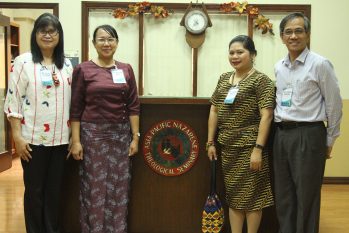
ATESEA Team
In addition to the accreditation from ATESEA, APNTS has also been accredited with the Asia Theological Association (ATA), which has 336 member institutions, since 1988, and is recognized by the Commission on Higher Education (CHED) of the Government of the Philippines, both largely through the efforts of then APNTS President Dr. E. Lebron Fairbanks and his team. APNTS is recognized by the Commission on Higher Education, Republic of the Philippines.
APNTS is a member of the Asia Graduate School of Theology (AGST), a consortium of evangelical seminaries that offer the Master of Theology; Doctor of Ministry (D.Min), Doctor of Education (Ed.D.), Doctor of Missiology (D.Miss.), and Ph.D. programs in the Philippines. The AGST Ph.D. programs in Holistic Child Development, Transformational Learning, and Transformational Development are hosted and taught on the APNTS campus.
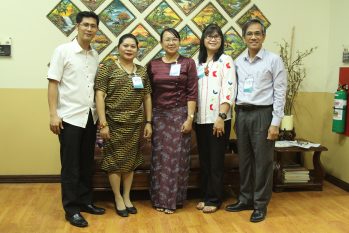
ATESEA with APNTS Academic Dean Dr. Dick Eugenio
APNTS is a member of the International Board of Education and the Global Consortium of Graduate Theological Schools of the Church of the Nazarene, and it’s Master of Divinity program is validated by the Asia-Pacific Region, Church of the Nazarene, as fulfilling Course of Study requirements for ordination as an elder in the denomination.
Additionally, APNTS a member of the Association of Christian Schools, Colleges, and Universities (ACSCU); the Global Alliance of Schools Offering Programs in Holistic Child Development; and is a partner with the Australasian Centre for Wesleyan Research (ACWR), and is affiliated with the International Association of Methodist-Related Schools, Colleges, and Universities. The Commission of Immigration and Deportation, Department of Justice, Republic of the Philippines, has approved the Seminary as an educational institution for non-immigrant students.
Originally published on the Asia-Pacific Nazarene Theological Seminary Website

